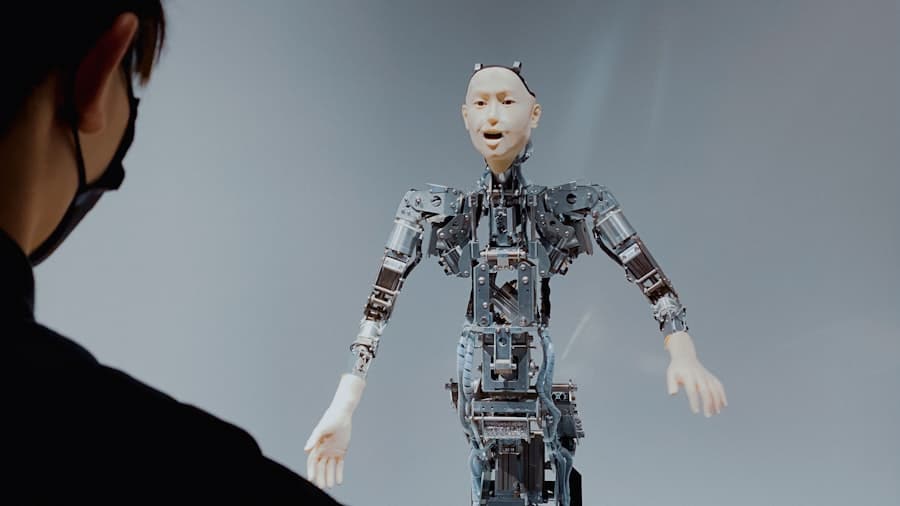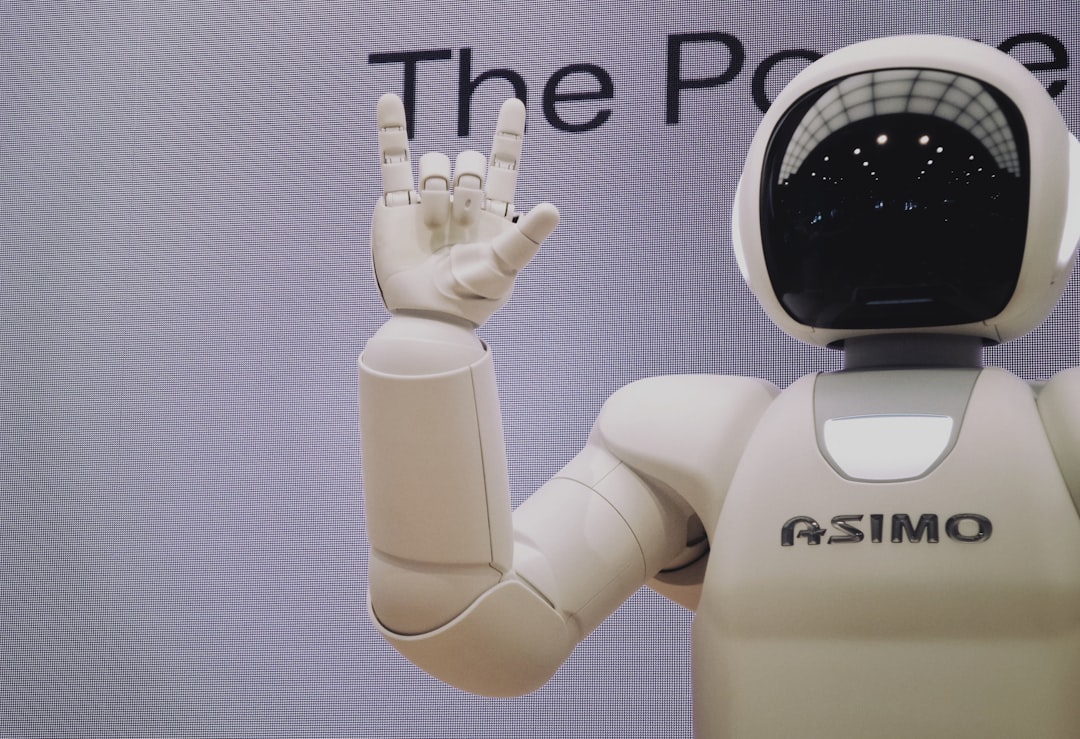The hospitality industry has long been synonymous with personalized service, warmth, and human interaction. However, the advent of artificial intelligence (AI) and robotics is transforming this landscape, introducing a new era where machines complement human efforts. AI-driven robots are increasingly being integrated into various facets of hospitality, from front desk operations to housekeeping and food service.
The integration of AI-driven robots in hospitality is not just a trend but a response to evolving consumer expectations and operational challenges. As travelers become more tech-savvy, they seek seamless experiences that blend convenience with innovation.
Hotels and restaurants are leveraging AI to meet these demands, deploying robots that can perform tasks ranging from check-in processes to delivering room service. This technological evolution is reshaping the traditional hospitality model, allowing businesses to focus on enhancing the human touch while relying on robots for routine tasks.
Key Takeaways
- AI-driven robots are revolutionizing the hospitality industry by providing efficient and personalized guest services.
- These robots are transforming housekeeping by automating repetitive tasks and ensuring cleanliness and hygiene standards are met.
- AI-driven robots enhance guest experience by providing quick and accurate services, such as room service and concierge assistance.
- In food and beverage services, AI-driven robots are streamlining operations and ensuring timely and accurate delivery of orders.
- While AI-driven robots have a significant impact on hotel operations, there are challenges and concerns that need to be addressed, such as job displacement and privacy issues.
- The future of AI-driven robots in hospitality looks promising, with continued advancements in technology and the potential for even more personalized and efficient guest services.
The Role of AI-Driven Robots in Guest Services
AI-driven robots are increasingly taking center stage in guest services, where their capabilities can significantly enhance operational efficiency. For instance, many hotels have introduced robotic concierge services that can assist guests with check-in and check-out processes. These robots are equipped with natural language processing capabilities, allowing them to understand and respond to guest inquiries in real-time.
By automating these functions, hotels can reduce wait times and streamline operations, ultimately leading to a more satisfying guest experience. Moreover, these robots can provide information about hotel amenities, local attractions, and dining options, acting as a 24/7 resource for guests. For example, the Aloft Hotel in Cupertino, California, features a robot named Botlr that delivers items such as toiletries or snacks directly to guest rooms.
This not only enhances convenience for guests but also allows staff to focus on more complex tasks that require human interaction. The presence of AI-driven robots in guest services exemplifies how technology can augment traditional hospitality roles while maintaining a high level of service.
How AI-Driven Robots are Revolutionizing Housekeeping

Housekeeping is another area where AI-driven robots are making significant inroads. Traditionally viewed as labor-intensive and time-consuming, housekeeping operations are being transformed by robotic solutions that can perform routine cleaning tasks with precision and efficiency. For instance, robotic vacuum cleaners equipped with advanced sensors and mapping technology can autonomously navigate hotel corridors and guest rooms, ensuring that spaces are kept clean without the need for constant human oversight.
In addition to vacuuming, some hotels are experimenting with robots that can handle laundry services or restock supplies in guest rooms. The Hilton Hotel chain has piloted a robot called Rosie that assists housekeeping staff by delivering fresh towels and linens to various floors. This not only speeds up the cleaning process but also reduces the physical strain on staff members who would otherwise have to carry heavy loads throughout the hotel.
By integrating AI-driven robots into housekeeping operations, hotels can achieve higher standards of cleanliness while optimizing labor resources.
Enhancing Guest Experience with AI-Driven Robots
The deployment of AI-driven robots in hospitality is fundamentally about enhancing the guest experience. These robots are designed not only to perform tasks but also to engage with guests in meaningful ways. For example, some hotels have introduced social robots that can interact with guests through conversation and entertainment.
Furthermore, the use of AI-driven robots can help alleviate common pain points associated with travel. For instance, guests often face challenges when trying to navigate large hotel properties or find specific amenities.
Robots equipped with navigation capabilities can guide guests to their desired locations within the hotel, reducing frustration and enhancing overall satisfaction. By leveraging technology to address these issues, hotels can create a more enjoyable environment that encourages repeat visits and positive word-of-mouth referrals.
AI-Driven Robots in Food and Beverage Services
The food and beverage sector within hospitality is also experiencing a transformation due to AI-driven robots. From automated ordering systems to robotic servers, technology is reshaping how food is prepared and delivered. For instance, some restaurants have implemented robotic systems that can take orders via touchscreen interfaces or mobile apps, allowing guests to customize their meals without the need for human interaction.
This not only speeds up the ordering process but also minimizes errors associated with miscommunication. In addition to order-taking, robotic servers are becoming increasingly common in dining establishments. These robots can deliver food directly to tables or even perform tasks such as clearing dishes after meals.
An example of this innovation is the robotic waitstaff at the Robot Restaurant in Tokyo, which showcases how technology can enhance the dining experience while providing entertainment value. By incorporating AI-driven robots into food and beverage services, establishments can improve efficiency and create a unique dining atmosphere that attracts tech-savvy customers.
The Impact of AI-Driven Robots on Hotel Operations

The integration of AI-driven robots into hotel operations has far-reaching implications for efficiency and cost management. By automating routine tasks such as check-in, room service delivery, and housekeeping, hotels can significantly reduce labor costs while reallocating human resources to areas that require personal interaction and creativity. This shift allows staff members to focus on enhancing guest relations and providing exceptional service rather than being bogged down by repetitive tasks.
Moreover, the data collected by AI-driven robots can provide valuable insights into guest preferences and operational efficiency. For example, hotels can analyze patterns in room service requests or housekeeping needs to optimize staffing levels and inventory management. This data-driven approach enables hotels to make informed decisions that enhance operational performance while ensuring that guest expectations are met consistently.
Overcoming Challenges and Concerns with AI-Driven Robots
Despite the numerous benefits associated with AI-driven robots in hospitality, there are challenges and concerns that must be addressed. One significant issue is the potential for job displacement among hospitality workers as automation becomes more prevalent. While robots can handle routine tasks efficiently, there is a fear that this could lead to reduced employment opportunities for staff members who traditionally perform these roles.
It is essential for the industry to strike a balance between leveraging technology and maintaining a workforce that provides the personal touch that guests value. Another concern revolves around data privacy and security. As AI-driven robots collect data on guest preferences and behaviors, there is an inherent risk associated with managing this information responsibly.
Hotels must implement robust cybersecurity measures to protect sensitive data from breaches while ensuring compliance with regulations such as GDPR (General Data Protection Regulation). Addressing these challenges will be crucial for fostering trust among guests and ensuring the successful integration of AI-driven robots into hospitality operations.
The Future of AI-Driven Robots in Hospitality
Looking ahead, the future of AI-driven robots in hospitality appears promising as technology continues to evolve at an unprecedented pace. Innovations such as machine learning and advanced robotics will enable these machines to become even more sophisticated in their interactions with guests and their ability to perform complex tasks autonomously. As AI algorithms improve, robots will be able to learn from past interactions and adapt their responses based on individual guest preferences.
Moreover, the potential for collaboration between humans and robots will redefine the hospitality experience. Rather than viewing robots as replacements for human workers, the industry may increasingly see them as partners that enhance service delivery. This collaborative approach could lead to new roles within hospitality focused on managing and integrating robotic systems into daily operations.
As consumer expectations continue to shift towards personalized experiences driven by technology, the role of AI-driven robots will likely expand further within the hospitality sector. From enhancing operational efficiency to creating memorable guest interactions, these innovations will play a pivotal role in shaping the future landscape of hospitality services. The journey toward fully integrating AI-driven robots into hospitality is just beginning, but it promises to redefine how we experience travel and leisure in profound ways.
In the rapidly evolving world of hospitality, AI-driven robots are playing a pivotal role in enhancing service delivery and customer experience. These advanced technologies are not only streamlining operations but also providing personalized services to guests. For those interested in the technological advancements that complement these AI-driven solutions, an insightful article to explore is How to Choose the Best Smartphone for Gaming. This article delves into the latest smartphone technologies, which often share similar AI and machine learning capabilities that are being integrated into hospitality robots, showcasing the interconnectedness of modern tech innovations.
FAQs
What are AI-driven robots in the hospitality industry?
AI-driven robots in the hospitality industry are robots equipped with artificial intelligence technology to perform various tasks and services in hotels, restaurants, and other hospitality establishments. These robots are designed to assist with customer service, housekeeping, and other operational tasks.
How do AI-driven robots support hospitality services?
AI-driven robots support hospitality services by performing tasks such as room service delivery, concierge services, cleaning and maintenance, and customer assistance. They can also provide information to guests, handle check-in and check-out processes, and even entertain guests with interactive features.
What are the benefits of using AI-driven robots in the hospitality industry?
The benefits of using AI-driven robots in the hospitality industry include improved efficiency and productivity, cost savings, enhanced customer experience, and the ability to free up human staff to focus on more complex or personalized tasks. Additionally, AI-driven robots can operate 24/7 and are not affected by factors such as fatigue or human error.
Are AI-driven robots replacing human workers in the hospitality industry?
While AI-driven robots are capable of performing certain tasks in the hospitality industry, they are not necessarily replacing human workers. Instead, they are designed to work alongside human staff to enhance overall service and efficiency. Human workers are still essential for providing personalized service, addressing complex issues, and maintaining a human touch in hospitality interactions.
What are some examples of AI-driven robots used in the hospitality industry?
Examples of AI-driven robots used in the hospitality industry include delivery robots that bring amenities to guest rooms, robotic concierges that provide information and assistance to guests, and cleaning robots that autonomously navigate and clean hotel premises. Some robots are also equipped with natural language processing and voice recognition capabilities to interact with guests.

